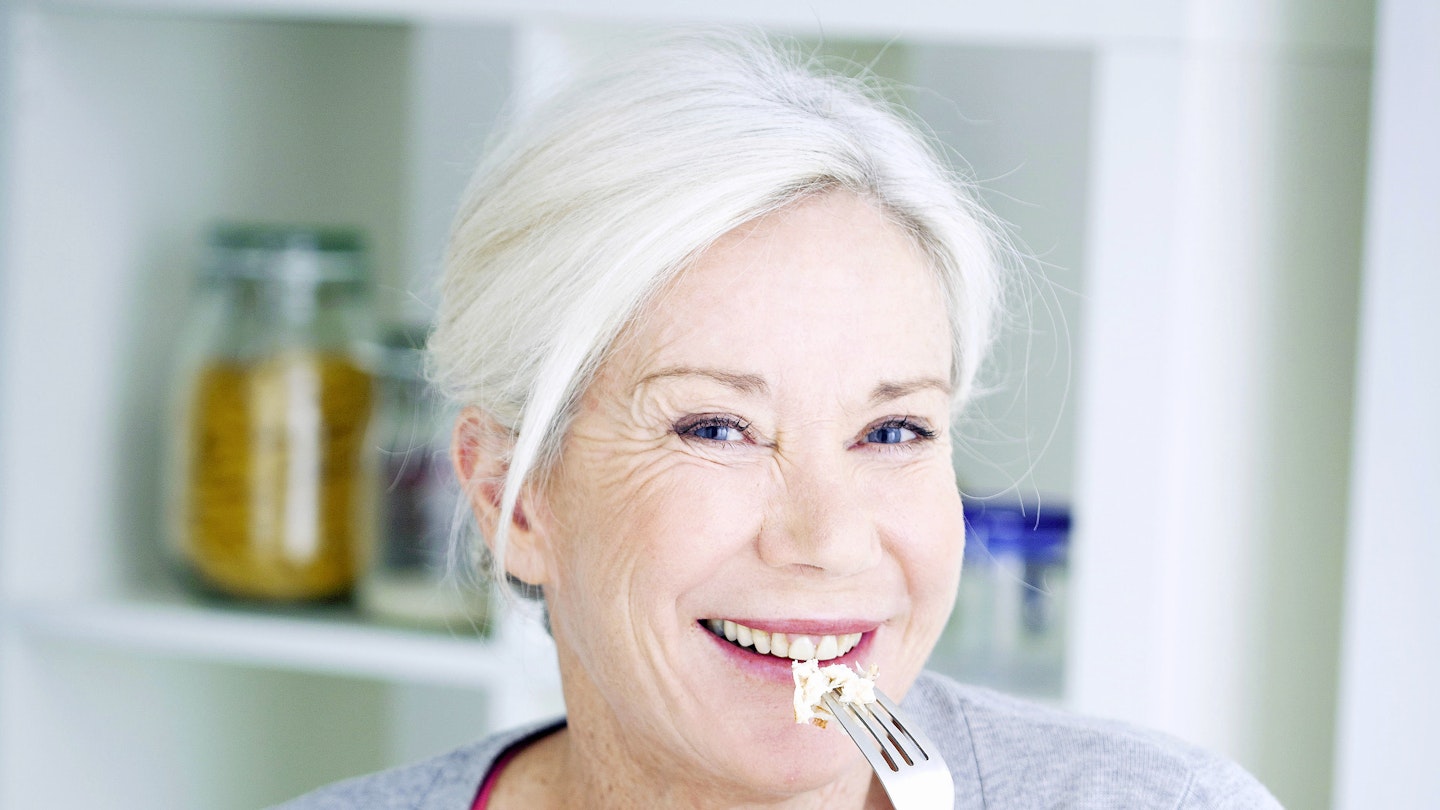It’s your second hot flush of the day, your mood is low and you’re feeling really fed up.
Many of us accept symptoms like these, telling ourselves it’s just part and parcel of going through the menopause.
But what if, by simply changing what we eat, we could change our experience? What if we could reduce hot flushes, night sweats and feelings of low mood and instead have more energy, more balanced hormones and more brainpower?
Emma Ellice-Flint, clinical nutritionist and author of The Happy Hormone Cookbook says: ‘The food choices we make and our gut health drastically affects our experience of the menopause and the perimenopause. If our gut is healthy and functioning well, we absorb food properly, which boosts our immunity, energy levels and mood. However, if our gut isn’t healthy and becomes inflamed, this can be a real driver of depression. We stop producing some of our happy hormones and our liver stops functioning as well, which may increase menopausal symptoms. In short, if our gut microbiome is imbalanced, we feel imbalanced too.’

So what can we do?
Emma says: ‘The key is to increase the amount of wholefoods we eat, such as vegetables, legumes, beans, nuts, seeds, apples, dark berries and wholegrains.
‘Wholefoods keep our gut microbiome happy, reduce inflammation of the gut and enable our body and brain to get more of the nutrients that we need to function well.’
And the good news?
Emma says: ‘Change doesn’t need to be drastic. Just introduce a few wholefoods each week, start layering them up and go from there.
‘With the right care and attention, our gut microbiome can be improved in as little as two weeks.’
Here, Emma explains how…
Add prebiotic foods
Prebiotic foods help to feed our ‘good’ gut microbiome, supporting healthy bacteria in the gut. They can also help lower levels of the stress hormone cortisol. Try adding fruit such as dark berries, bananas, or apples to your breakfast or incorporating more ingredients such as leeks, garlic, onions, cabbage, parsley, ginger and beetroot into evening meals.
Add probiotic foods
Probiotic foods contain live bacteria that’s beneficial to our gut and can help with some of the symptoms of menopause, such as bloating, low mood and energy. Foods like fermented cheese, live yogurt, live apple cider vinegar, kefir, sauerkraut and kombucha all help support a healthy gut.
Cut down on alcohol
Not only does alcohol stop our body from absorbing the nutrients from our food properly, but research shows it can also trigger hot flushes. Try cutting down to one glass of red wine a couple of times a week, sipped slowly. Even better, switch to alcohol-free drinks.
Add phytoestrogens
Try sprinkling ground flaxseeds or chopped walnuts on your breakfast. Research shows that phytoestrogens found in foods like nuts, seeds, soy, legumes and pulses help night sweats and hot flushes. Phytoestrogens also help us to rebalance our oestrogen levels.
Cut out sugar
Unfortunately, sugar feeds the wrong bacteria in our gut which can exacerbate menopausal symptoms such as hot flushes, bloating and feelings of anxiety. Instead, make an effort to try and limit your intake of sugar, and make healthy swaps, for example switching that bar of chocolate in your handbag for a piece of fresh fruit.
Increase your fibre intake
One of the best things you can do for your gut microbe is to gradually introduce as much fibre into your daily diet as possible. Eating a good variety of vegetables and other foods that are rich in fibre helps to reduce inflammation of the gut. It enables the good bacteria in our gut to flourish and has been shown to help reduce symptoms of the menopause.
Manage stress
Our small intestine is covered in small, finger-like projections called villi which help us to absorb our food. However, studies have shown that chronic stress can flatten our villi, stopping us from absorbing the nutrients and vitamins that we need. This is why during tough times it’s even more important to eat healthily.
By boosting our gut health, we can encourage our villi to become more robust. This helps them remain strong to do their job, keeping us healthy, even during our most stressful times.
Edited by Stephanie May
For recipes, workshops and more information, please visit emmasnutrition.com
